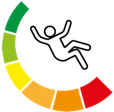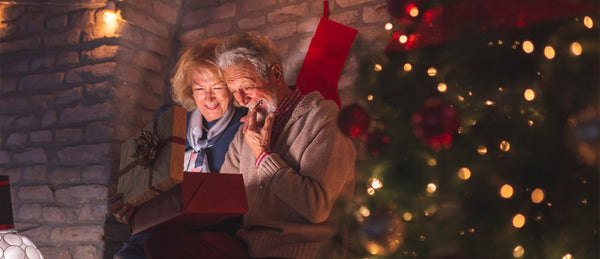Let’s make no bones about it, dementia is tough. Today there’s little we can do to fix it, and there’s so much that we don’t yet understand. It affects around 850,000 people across the UK. That’s more people than live in Leeds. More even than Glasgow, the busiest city in Scotland. For those living with dementia, and their carers, every day brings new challenges.
We use the word ‘dementia’ to cover what happens when someone’s brain cells stop working properly. They’ll have memory loss, and difficulties solving day-to-day problems. You may also notice fast-changing moods or odd behaviour. As dementia worsens, it becomes severe enough to affect their daily life at home. It’s hard to know what to do to keep them safe.
A mixed-up memory means they may not know if they have taken their pills – or taken too many. They may get confused just making a sandwich. They’ll do things in the wrong order or use the wrong kitchen utensils. They may have problems judging distances, so it’s hard to go upstairs or into the garden.
The difference between safe and unsafe may be plain as day to us, but not for our loved one.
Creating a safe home for dementia sufferers
One small step is to create a safer home, preventing injuries for them and stress for you. That means taking a fresh pair of eyes to everyday risks. Hazards can be found in garages and tool sheds – but also living areas, kitchens and bathrooms.
Start out by de-cluttering indoors. Those loose rugs may be beautiful, but they can also cause broken bones. And while good lighting is important, top-heavy floor lamps are a bad idea. At the very least, you should put them against a wall and keep electric leads tucked away.
Making sheds and garages safer
Another obvious job is to lock sheds and garages, as they contain tools and chemicals. A new latch or lock may help, simply because it’s unfamiliar. Think about using keyed deadbolts, or extra locks up high or down low. If your loved one is prone to wandering off, put secure locks on all outside doors and windows. A GPS tracker alarm can trigger a call to our Emergency Resolution Centre when the device strays outside of pre-set geo-ringfenced areas.
A safer kitchen
Kitchen areas are often home to spills, cuts and burns. But there are things you can do, like getting rid of sharp edges and electrical gadgets. After all, even simple kitchen blenders can be risky if you’re not thinking straight. Knives and heavy pots can be stored away. To prevent cooking accidents, you could remove the knobs for the hob, and consider automatic shut-off switches. Hiding away kitchen stools will stop trips and falls.
Some dementia pills affect taste and smell. This is tricky in the kitchen because it stops sufferers being able to tell if food has gone off. So keep checking the fridge and cupboards, just in case. For cupboards that hold medicine, matches or cleaning supplies, you can fit childproof latches.
Preventing falls in the bathroom
When it comes to the bathroom, don’t forget to remove the locks on doors to prevent accidental lock-ins.
The wet and slippery surfaces in a bathroom also need attention - you can get non-skid mats for showers and bathtubs. Products like raised toilet seats and grab bars also help, as many dementia sufferers have a fear of falling.
If a fall does happen, a personal fall alarm can be a real lifesaver. There are a number of these on the market, based on the same idea. The detector is worn like a necklace or a watch, and automatically triggers an alert to a monitoring team if the wearer has taken a tumble. They send an alert – day or night - without the wearer having to do anything themselves. No-one needs to worry about mastering a mobile phone, or keeping it nearby, or fiddly touchscreens. What’s more, the fall detector checks on its own battery life every day, so you don’t have to.
You can ask your local authority or telecare provider about a safe home assessment, to help you decide which type of detector is most suitable.
Getting more support
If you have more tips about home safety, you can swap them with others on the lively Alzheimer's Society forum. It will put you in touch with both experts and those going through a similar situation. Their website is the best there is for learning about dementia, and for finding specialist help and advice.
About Taking Care
At Taking Care, we’re working on the next generation of products and services to help people age well. With our personal alarms for the elderly we already help over 70,000 people stay in the homes they love. We provide a range of telecare devices that work along side the personal alarm service, including elderly fall alerts, dementia trackers and dementia alarms.



